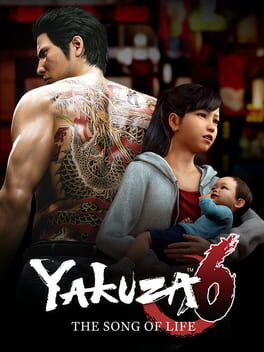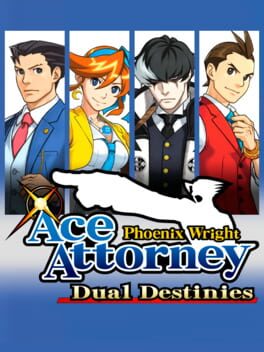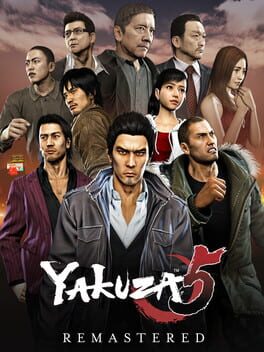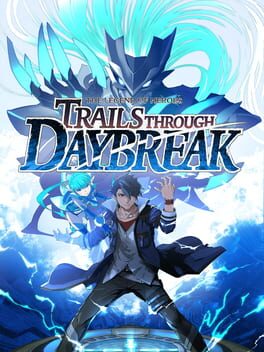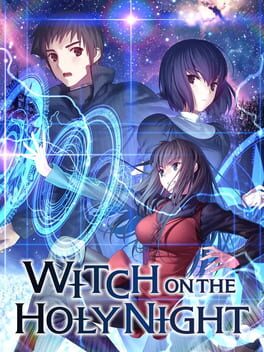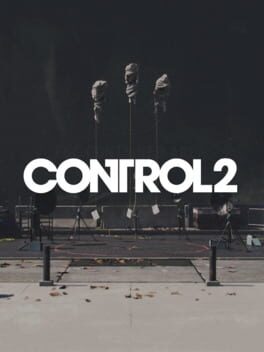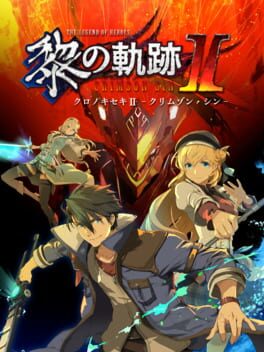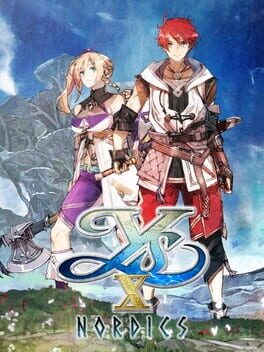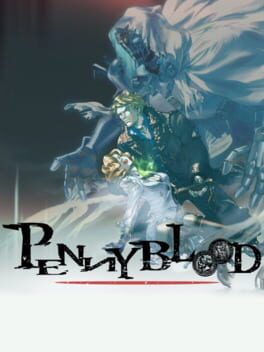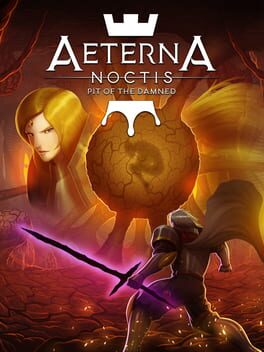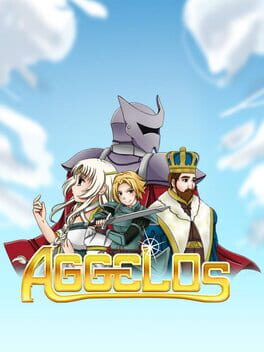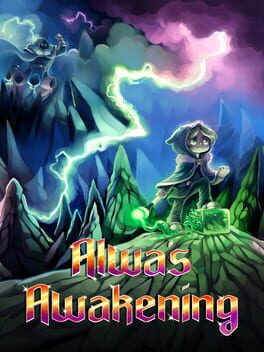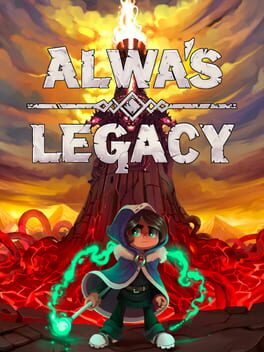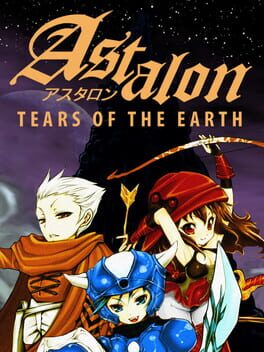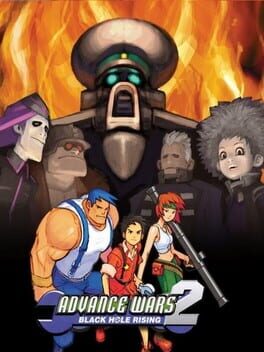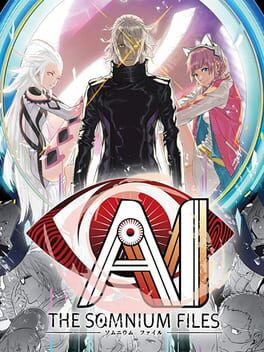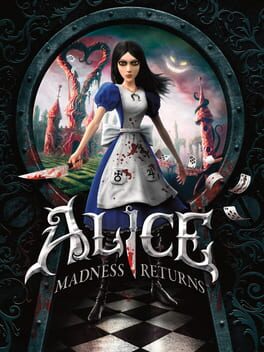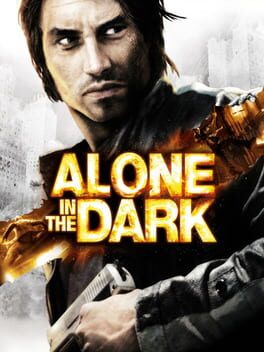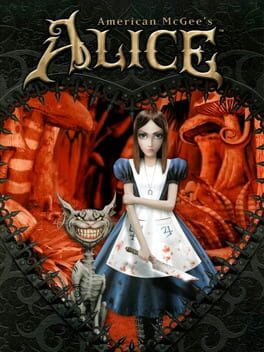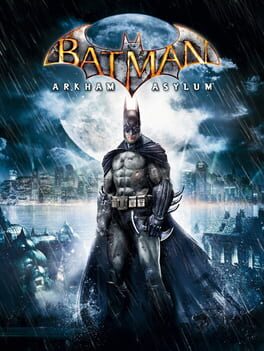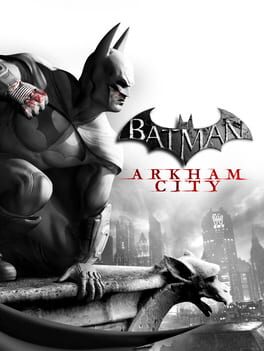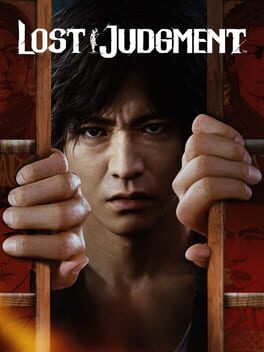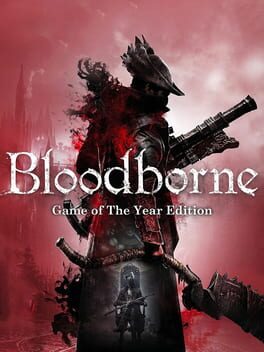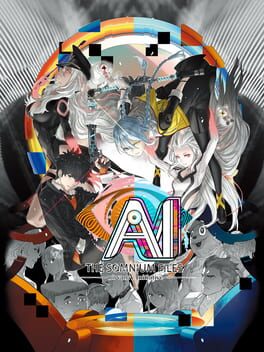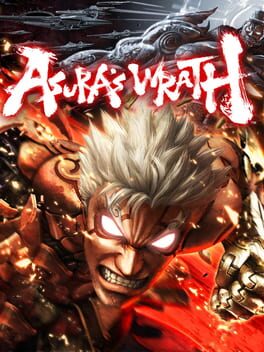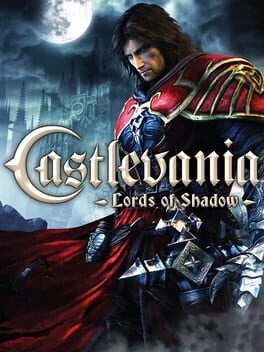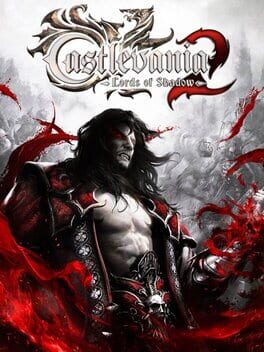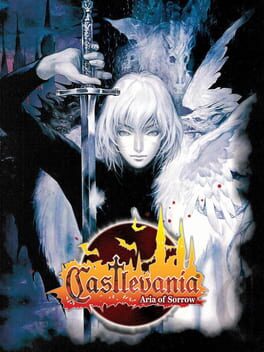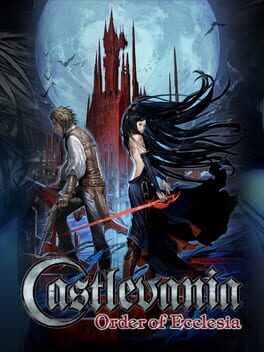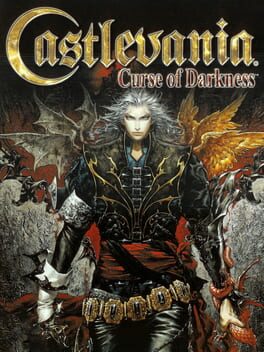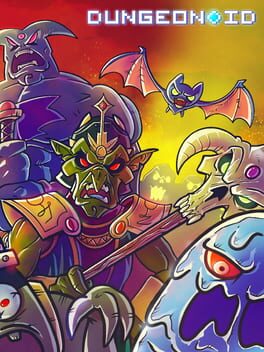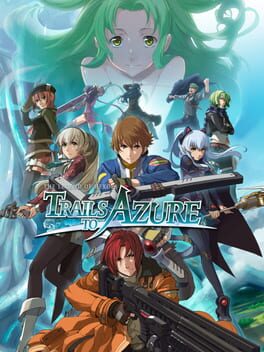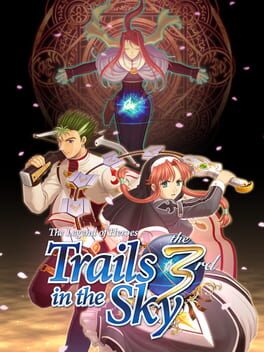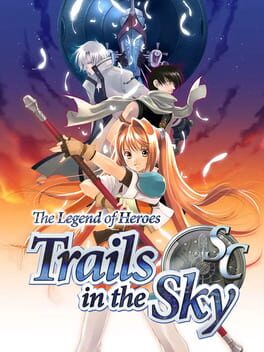DippoMagoo
215 reviews liked by DippoMagoo
"Once you're at rock bottom, the only way forward is up. But the bottom doesn't have to be all dark and gloomy. If you can stand and look up, you'll see the light of hope up there." - Kasuga Ichiban
Have you ever wondered what it would be like to play a Persona game with a cast of characters that are all middle-aged misfits and losers who are led by a 42 year-old homeless gamer with undiagnosed schizophrenia and the personality of Luffy from One Piece? Well boy do I have a game for you...
Featuring a whole new cast of characters, a new setting, a new protagonist and even a new battle system replacing the iconic beat-em up gameplay of old for turn-based J-RPG tactics, Like a Dragon truly feels like a fresh new beginning for the Yakuza series, but at the same time a natural evolution of the series formula as well because let's be honest, past Yakuza games were just J-RPGs with beat 'em up combat.
Like a Dragon follows the tale of Kasuga Ichiban, an ex-yakuza who hits rock bottom after a tragic betrayal. Homeless and struggling to survive, Ichiban goes on a personal quest to become the hero he always dreamt he could be and uncover the truth about his betrayal. Ichiban's story is a deep and personal adventure full of incredibly strong emotional moments and easily one of the best stories the Yakuza series has to offer in general.
I really appreciate how the early game does its best to make you feel powerless and homeless to the point of even finding 500 yen under a vending machine feels like a big event that should be celebrated and that gives such a massive sense of progression in the later game when you have millions of yen and the best gear possible. Also something I adore about Like a Dragon's story and something that sets it apart from other RPGs is how it makes even the most mundane things like just getting a job feel exciting and adventurous essentially turning real life itself into an adventure which is very fitting for a character like Ichiban.
Speaking of Ichiban a lot of people will be wondering how he stands up to Kiryu and all I can say is that after being the main protagonist of the series for 7 games Kazuma Kiryu leaves some big shoes to fill and Ichiban doesn't fill them, but that's ok because Kiryu and Ichiban are two completely different characters and the game itself does it's best to get this point across. Ichiban doesn't need to fill Kiryu's shoes or take up his legacy because Ichiban is Ichiban and here's what Ichiban is, a homeless 42 year-old delusional chuunibyou who thinks life is like a video game and has the personality of a teenage anime protagonist. He's hotheaded, overly optimistic to a fault, somewhat naive and would do anything for his friends but all these traits are exactly WHY he's so endearing and what makes him such an easy protagonist to root for, the world would be a better place if we were all a little bit more like Ichiban. Also Kazuhiro Nakaya's absolutely incredible voice acting performance really helps bring Ichiban to life as a character as well.
Yakuza games of the past primarily focused on Kiryu's life and his struggles and while Yakuza 7 does the same for Ichiban it's also an RPG with a full cast of characters that follow Ichiban from beginning to end and the game does everything in its power to flesh out Ichiban's fellow party members and companions just as well as him making the sense of camaraderie they all share feel that much more real and believable. Ichiban can build up bonds with his party members simply by teaming up with them on the battlefield or by spending downtime with them at the party's hideout the Survive Bar. Some of Ichiban's party members include a fellow homeless man, an ex-detective turned alcoholic driving instructor and a barmaid. Every party member has a Persona-like social link storyline called a "Drink Link" that you can experience. These in-depth stories help give tons of depth and flesh out Ichiban's party members a lot, but even doing smaller activities like walking around town or going to eat at a restaurant will trigger party conversations and interactions that remind me of the skits from the Tales Of series and even simple things like characters talking about their favorite foods or favorite movies together really give them tons of personality and make them feel more real and relatable.
Like I mentioned at the beginning of this review Like a Dragon is unlike any other Yakuza game before it being entirely turn-based and speaking as someone who has been playing J-RPGs for 20+ years of my life I think Like a Dragon has one of the most engaging and enjoyable turn-based combat systems I've ever experienced and one of the reasons why I say that is due to how dynamic the combat is thanks to the world around you constantly moving and your characters being able to use their surroundings as weapons in combat from picking up a bike they cross paths with as they go to attack an enemy to knocking an enemy into the road and letting traffic do the rest, there's no shortage of ways to handle combat situations. I also have to mention that the game is turn-based simply because that's the way Ichiban views the world when he gets into a fight due to his obsession with Dragon Quest and I think that's just another incredibly endearing aspect of his character and for a series known for its ludonarrative dissonance that's an incredibly clever way to explain the game mechanics and make them harmonize with the world of the game itself.
Naturally it's no surprise that Like a Dragon features an old school job system akin to classic Final Fantasy or Dragon Quest itself since that's Ichiban's favorite game, but what makes the job system of this game stand out is how over-the-top and silly it is. Most normal RPGs would have mages and warriors, but in Like a Dragon we get classes like "Homeless Guy" who can throw beans at enemies to summon pigeons to attack or Chef's who throw silverware or Host's who spray champagne among many other classes. The attack animations are just so over-the-top and silly that they give the game so much charm, but I think where this is most evident is in the Final Fantasy-like summons called "Poundmates" where Ichiban uses his cellphone to order some back up and the summons include a crawfish that can poison your enemies, a soup kitchen worker who can replenish your mana or a giant Yakuza dressed like a baby who's cry defeans your enemies among many others, getting a new summon was always a treat just to witness the wacky hijinks that would happen when activating it.
Yakuza games are known for their mini-games and side activities and Like a Dragon is no exception to this rule. Like a Dragon has series staples like karaoke (Featuring a few new songs which are great btw), Sega arcade games like Virtua Fighter, golf bingo and batting cages, but also new things like a Mario Kart styled racing game, a Pac-Man-like can collecting game and a massive business management simulator that is long enough and has enough depth to it that it could be its own standalone game. Another defining aspect of the Yakuza series has always been the sub-stories and like most games in the series Like a Dragon also features over 50 sub-stories (which act as the side-quests of the game) that help flesh out the world and its inhabitants even more and give extra depth to Ichiban as a character by going through these various stories and helping the people of the city around him.
Speaking of the world-building there's tons of references to past Yakuza games both in sub-stories and just in the main game too, plenty of returning characters as well and that's the one downside to the game because it's hard to recommend to people without them having played the past games as well, but that just comes with the territory of any long-running, interconnected series unfortunately.
From its Persona-like social links to it's Dragon Quest job system, Final Fantasy styled summons and Tales Of character interactions Like a Dragon is a J-RPG that's about J-RPGs. It's a beautiful love letter to my favorite genre of games wrapped up in an inspiring and emotional tale about a man who always chooses to look at the bright side of life no matter how dark things may seem. It has a charming and well written cast of memorable characters, deep and immersive world-building, tons of side content to get lost in for hours and one of the most fun, over-the-top and engaging turn based combat systems I've ever had the joy of experiencing. Simply put, Like a Dragon is nothing short of a genre defining and life changing masterpiece that will stick with me for the rest of my life and if you love J-RPGs as much as me you'd be a fool to miss out on this game.
Have you ever wondered what it would be like to play a Persona game with a cast of characters that are all middle-aged misfits and losers who are led by a 42 year-old homeless gamer with undiagnosed schizophrenia and the personality of Luffy from One Piece? Well boy do I have a game for you...
Featuring a whole new cast of characters, a new setting, a new protagonist and even a new battle system replacing the iconic beat-em up gameplay of old for turn-based J-RPG tactics, Like a Dragon truly feels like a fresh new beginning for the Yakuza series, but at the same time a natural evolution of the series formula as well because let's be honest, past Yakuza games were just J-RPGs with beat 'em up combat.
Like a Dragon follows the tale of Kasuga Ichiban, an ex-yakuza who hits rock bottom after a tragic betrayal. Homeless and struggling to survive, Ichiban goes on a personal quest to become the hero he always dreamt he could be and uncover the truth about his betrayal. Ichiban's story is a deep and personal adventure full of incredibly strong emotional moments and easily one of the best stories the Yakuza series has to offer in general.
I really appreciate how the early game does its best to make you feel powerless and homeless to the point of even finding 500 yen under a vending machine feels like a big event that should be celebrated and that gives such a massive sense of progression in the later game when you have millions of yen and the best gear possible. Also something I adore about Like a Dragon's story and something that sets it apart from other RPGs is how it makes even the most mundane things like just getting a job feel exciting and adventurous essentially turning real life itself into an adventure which is very fitting for a character like Ichiban.
Speaking of Ichiban a lot of people will be wondering how he stands up to Kiryu and all I can say is that after being the main protagonist of the series for 7 games Kazuma Kiryu leaves some big shoes to fill and Ichiban doesn't fill them, but that's ok because Kiryu and Ichiban are two completely different characters and the game itself does it's best to get this point across. Ichiban doesn't need to fill Kiryu's shoes or take up his legacy because Ichiban is Ichiban and here's what Ichiban is, a homeless 42 year-old delusional chuunibyou who thinks life is like a video game and has the personality of a teenage anime protagonist. He's hotheaded, overly optimistic to a fault, somewhat naive and would do anything for his friends but all these traits are exactly WHY he's so endearing and what makes him such an easy protagonist to root for, the world would be a better place if we were all a little bit more like Ichiban. Also Kazuhiro Nakaya's absolutely incredible voice acting performance really helps bring Ichiban to life as a character as well.
Yakuza games of the past primarily focused on Kiryu's life and his struggles and while Yakuza 7 does the same for Ichiban it's also an RPG with a full cast of characters that follow Ichiban from beginning to end and the game does everything in its power to flesh out Ichiban's fellow party members and companions just as well as him making the sense of camaraderie they all share feel that much more real and believable. Ichiban can build up bonds with his party members simply by teaming up with them on the battlefield or by spending downtime with them at the party's hideout the Survive Bar. Some of Ichiban's party members include a fellow homeless man, an ex-detective turned alcoholic driving instructor and a barmaid. Every party member has a Persona-like social link storyline called a "Drink Link" that you can experience. These in-depth stories help give tons of depth and flesh out Ichiban's party members a lot, but even doing smaller activities like walking around town or going to eat at a restaurant will trigger party conversations and interactions that remind me of the skits from the Tales Of series and even simple things like characters talking about their favorite foods or favorite movies together really give them tons of personality and make them feel more real and relatable.
Like I mentioned at the beginning of this review Like a Dragon is unlike any other Yakuza game before it being entirely turn-based and speaking as someone who has been playing J-RPGs for 20+ years of my life I think Like a Dragon has one of the most engaging and enjoyable turn-based combat systems I've ever experienced and one of the reasons why I say that is due to how dynamic the combat is thanks to the world around you constantly moving and your characters being able to use their surroundings as weapons in combat from picking up a bike they cross paths with as they go to attack an enemy to knocking an enemy into the road and letting traffic do the rest, there's no shortage of ways to handle combat situations. I also have to mention that the game is turn-based simply because that's the way Ichiban views the world when he gets into a fight due to his obsession with Dragon Quest and I think that's just another incredibly endearing aspect of his character and for a series known for its ludonarrative dissonance that's an incredibly clever way to explain the game mechanics and make them harmonize with the world of the game itself.
Naturally it's no surprise that Like a Dragon features an old school job system akin to classic Final Fantasy or Dragon Quest itself since that's Ichiban's favorite game, but what makes the job system of this game stand out is how over-the-top and silly it is. Most normal RPGs would have mages and warriors, but in Like a Dragon we get classes like "Homeless Guy" who can throw beans at enemies to summon pigeons to attack or Chef's who throw silverware or Host's who spray champagne among many other classes. The attack animations are just so over-the-top and silly that they give the game so much charm, but I think where this is most evident is in the Final Fantasy-like summons called "Poundmates" where Ichiban uses his cellphone to order some back up and the summons include a crawfish that can poison your enemies, a soup kitchen worker who can replenish your mana or a giant Yakuza dressed like a baby who's cry defeans your enemies among many others, getting a new summon was always a treat just to witness the wacky hijinks that would happen when activating it.
Yakuza games are known for their mini-games and side activities and Like a Dragon is no exception to this rule. Like a Dragon has series staples like karaoke (Featuring a few new songs which are great btw), Sega arcade games like Virtua Fighter, golf bingo and batting cages, but also new things like a Mario Kart styled racing game, a Pac-Man-like can collecting game and a massive business management simulator that is long enough and has enough depth to it that it could be its own standalone game. Another defining aspect of the Yakuza series has always been the sub-stories and like most games in the series Like a Dragon also features over 50 sub-stories (which act as the side-quests of the game) that help flesh out the world and its inhabitants even more and give extra depth to Ichiban as a character by going through these various stories and helping the people of the city around him.
Speaking of the world-building there's tons of references to past Yakuza games both in sub-stories and just in the main game too, plenty of returning characters as well and that's the one downside to the game because it's hard to recommend to people without them having played the past games as well, but that just comes with the territory of any long-running, interconnected series unfortunately.
From its Persona-like social links to it's Dragon Quest job system, Final Fantasy styled summons and Tales Of character interactions Like a Dragon is a J-RPG that's about J-RPGs. It's a beautiful love letter to my favorite genre of games wrapped up in an inspiring and emotional tale about a man who always chooses to look at the bright side of life no matter how dark things may seem. It has a charming and well written cast of memorable characters, deep and immersive world-building, tons of side content to get lost in for hours and one of the most fun, over-the-top and engaging turn based combat systems I've ever had the joy of experiencing. Simply put, Like a Dragon is nothing short of a genre defining and life changing masterpiece that will stick with me for the rest of my life and if you love J-RPGs as much as me you'd be a fool to miss out on this game.
Persona 3 Reload
2024
I’ll readily admit I’m biased when it comes to Persona 3. FES is a game I hold very dearly, still remember first playing it a decade ago now and having no idea about Atlus games at the time. In a way it was even transformative for me in how much it helped grow my interest for anime/JRPGs in general, and one of the rare few games I feel leaves an emotional impact. So Persona 3 Reload, a genuine from the ground up remake for it and not just a basic port (like Portable’s recent release), is like a dream game I didn’t think we’d ever actually get until it was really announced last year. It’s not perfect of course, but the nostalgia and how strongly it still hit me is the same as ever
What it does well
- The most immediately striking improvement from the PS2 original is the presentation overhaul to Persona 5’s standards, bringing with it full scale character models with the very stylish art and UI that made P5 so dazzling. Here P3’s aesthetics have been beautifully updated and the menus are especially immaculate, never getting tiring to look at and browse through. While it can be argued the original’s moody atmosphere is diminished a bit with the new vibrant style, it still wholly fits the game’s somber tone to me
- A big change with Reload that I appreciated actually has to do with the English voice acting, as compared to FES and Portable there’s been an entire recast for the characters (barring one exception with Elizabeth). It’s fair to be apprehensive over this after being used to the original voices for so long, but I felt Reload’s cast did a fantastic job bringing new life to the characters and really making them their own. I’d even go so far as to say this is one of the best dubs Atlus has done, as not only are pretty much all the performances consistently excellent, this is also the first Persona game where every single side character and their Social Link events are fully voice acted! Something that really made a huge difference in how invested I’ve always been on spending time with them. It’s an impressive effort and I hope that’ll be the case for future Atlus games also
- As far as story goes, it’s faithful to the original with the major beats being unchanged, but there’s many new scenes added with better opportunities to bond with the characters now. The dorm feels more like a true home in Reload where you can just hang out and it helps attach you to them in a way that wasn’t quite as fleshed out before. A big omission in FES (the lack of any Social Links for male party members) was also addressed with Link Episodes, which are similar in that it gives them further development but instead ties their events to the story as you progress. They’re not quite the same as full Social Links like with Portable, but it’s a very appreciated change that felt natural and added a lot to their growth
- Tartarus has always been a divisive like it or hate it kind of thing with P3, and it’s more or less the same dungeon with literally over 200 generated floors to climb in Reload. That said it’s been improved with much larger scaled floors and QoL additions, it looks a lot better design wise, and they did add some nice improvements that made it less of a bore to get through like Monad doors (challenges to fight stronger enemies throughout). Combat now also takes directly from P5’s battle system and is basically identical, which gets no complaints from me. There’s party control with new mechanics like Shift (similar to Baton Pass) and Theurgy, it’s really stylish, and it’s much breezier to fight shadows and fly through floors than before which is pretty much all I wanted there. Merciless difficulty was pretty fun too, not very hard but not a joke either which is better than how they had it for P5 Royal, would recommend trying it if used to the combat in these games
- The music is fairly different having been fully remixed with Lotus Juice and a new singer Azumi Takahashi doing vocals, while also adding some original tracks as well. I’ve seen mixed opinions about the OST changes, but personally I got used to it quickly and still think it’s an incredible soundtrack. The new songs “Full Moon, Full Life”, “It’s Going Down Now” and “Color Your Night” are easily among my favorites in the series now too
What could be better
- Obviously Atlus made it clear with Reload they were only focused on remaking P3’s main game with the male protagonist, which means it doesn’t include both The Answer (an expanded epilogue introduced in FES) and the extensive route for the female protagonist that Portable introduced. It does still include smaller additions from both those versions such as Aigis’s Social Link or missing persons to save in Tartarus, but I can understand why people are let down by the major exclusions especially for the price, as without them you might as well say P3 still doesn’t have a true edition that brings all its content together. However as of now The Answer’s currently rumored to be made for Reload as DLC at a later date, so have to see how that pans out I suppose
- While I adore the presentation, there are a few odd quirks to its visuals. Most areas look nice and it even supports 4K/60 with ray tracing on PS5 which was a surprise to say the least, but some areas look sorta… off. Either with its strangely flat lighting (the dorm being an example) or being static to the point of seeming unintentional honestly (calling out Club Escapade in particular). Perhaps it’s due to budget or just cause it’s using Unreal Engine instead of P5’s proprietary one, but feel there could’ve been a bit more polish there
- I’m a bit mixed on cutscenes compared to FES. As rough as they were, the anime scenes did have a very cool grungy 2000s direction to them that made up for the graphics at the time. Instead Reload uses both new anime and in-engine cutscenes throughout similar to P5, which for the most part are fine (I actually like the in-engine ones quite a bit with how nice the 3D visuals are now), but the quality of the anime scenes take a hit in my opinion, more up to date with them being done by Wit Studio but also looking kinda bland in comparison. How they decided between one or the other for story moments is inconsistent also, why is the awakening scene done in-engine and not as anime for instance
- For Social Links the writing is one thing I wish was touched up on more. There’s some notable differences here and there (and thankfully made it so you aren’t forced to romance every girl to complete them), but overall it’s mostly the same and you can easily tell they’re the earliest iteration on the formula with the weaker Social Links still sticking out (Kenji for one). But as mentioned the voice acting elevates them nonetheless, and I still love particular ones like Akinari’s
- You’ll easily max out your social stats and unlock all the extra skills for party members with plenty of time to spare, which means you’ll probably be lost on stuff to do at night in the late months with still only 2 social links available the whole game. There’s a new computer with software to use, but eventually you’ll make full use of that also which basically just leaves Tartarus or stat building for Personas at the arcade. This was an issue with the other versions too and was hoping they would try to adjust it, but guess not
Overall
Some aspects could’ve been improved upon further overall, but really couldn’t be happier this remake was made. As someone who’s played FES, Portable, and watched all the movies (even owning the box set lol), Reload genuinely felt like I was able to experience P3 for the first time again. It doesn’t try to change the original experience at its core and can be said it’s faithful to a fault, but it still develops into a story that remains the most emotionally resonant among the Persona games for me. Where it succeeds is how well it carries over that story to current standards for both new and old fans, doing just enough to expand on it and modernize the gameplay while maintaining why it’s so beloved. Even knowing how it comes together after all these years I was still greatly affected, and given that it remains one of the most meaningful I’ve played
What it does well
- The most immediately striking improvement from the PS2 original is the presentation overhaul to Persona 5’s standards, bringing with it full scale character models with the very stylish art and UI that made P5 so dazzling. Here P3’s aesthetics have been beautifully updated and the menus are especially immaculate, never getting tiring to look at and browse through. While it can be argued the original’s moody atmosphere is diminished a bit with the new vibrant style, it still wholly fits the game’s somber tone to me
- A big change with Reload that I appreciated actually has to do with the English voice acting, as compared to FES and Portable there’s been an entire recast for the characters (barring one exception with Elizabeth). It’s fair to be apprehensive over this after being used to the original voices for so long, but I felt Reload’s cast did a fantastic job bringing new life to the characters and really making them their own. I’d even go so far as to say this is one of the best dubs Atlus has done, as not only are pretty much all the performances consistently excellent, this is also the first Persona game where every single side character and their Social Link events are fully voice acted! Something that really made a huge difference in how invested I’ve always been on spending time with them. It’s an impressive effort and I hope that’ll be the case for future Atlus games also
- As far as story goes, it’s faithful to the original with the major beats being unchanged, but there’s many new scenes added with better opportunities to bond with the characters now. The dorm feels more like a true home in Reload where you can just hang out and it helps attach you to them in a way that wasn’t quite as fleshed out before. A big omission in FES (the lack of any Social Links for male party members) was also addressed with Link Episodes, which are similar in that it gives them further development but instead ties their events to the story as you progress. They’re not quite the same as full Social Links like with Portable, but it’s a very appreciated change that felt natural and added a lot to their growth
- Tartarus has always been a divisive like it or hate it kind of thing with P3, and it’s more or less the same dungeon with literally over 200 generated floors to climb in Reload. That said it’s been improved with much larger scaled floors and QoL additions, it looks a lot better design wise, and they did add some nice improvements that made it less of a bore to get through like Monad doors (challenges to fight stronger enemies throughout). Combat now also takes directly from P5’s battle system and is basically identical, which gets no complaints from me. There’s party control with new mechanics like Shift (similar to Baton Pass) and Theurgy, it’s really stylish, and it’s much breezier to fight shadows and fly through floors than before which is pretty much all I wanted there. Merciless difficulty was pretty fun too, not very hard but not a joke either which is better than how they had it for P5 Royal, would recommend trying it if used to the combat in these games
- The music is fairly different having been fully remixed with Lotus Juice and a new singer Azumi Takahashi doing vocals, while also adding some original tracks as well. I’ve seen mixed opinions about the OST changes, but personally I got used to it quickly and still think it’s an incredible soundtrack. The new songs “Full Moon, Full Life”, “It’s Going Down Now” and “Color Your Night” are easily among my favorites in the series now too
What could be better
- Obviously Atlus made it clear with Reload they were only focused on remaking P3’s main game with the male protagonist, which means it doesn’t include both The Answer (an expanded epilogue introduced in FES) and the extensive route for the female protagonist that Portable introduced. It does still include smaller additions from both those versions such as Aigis’s Social Link or missing persons to save in Tartarus, but I can understand why people are let down by the major exclusions especially for the price, as without them you might as well say P3 still doesn’t have a true edition that brings all its content together. However as of now The Answer’s currently rumored to be made for Reload as DLC at a later date, so have to see how that pans out I suppose
- While I adore the presentation, there are a few odd quirks to its visuals. Most areas look nice and it even supports 4K/60 with ray tracing on PS5 which was a surprise to say the least, but some areas look sorta… off. Either with its strangely flat lighting (the dorm being an example) or being static to the point of seeming unintentional honestly (calling out Club Escapade in particular). Perhaps it’s due to budget or just cause it’s using Unreal Engine instead of P5’s proprietary one, but feel there could’ve been a bit more polish there
- I’m a bit mixed on cutscenes compared to FES. As rough as they were, the anime scenes did have a very cool grungy 2000s direction to them that made up for the graphics at the time. Instead Reload uses both new anime and in-engine cutscenes throughout similar to P5, which for the most part are fine (I actually like the in-engine ones quite a bit with how nice the 3D visuals are now), but the quality of the anime scenes take a hit in my opinion, more up to date with them being done by Wit Studio but also looking kinda bland in comparison. How they decided between one or the other for story moments is inconsistent also, why is the awakening scene done in-engine and not as anime for instance
- For Social Links the writing is one thing I wish was touched up on more. There’s some notable differences here and there (and thankfully made it so you aren’t forced to romance every girl to complete them), but overall it’s mostly the same and you can easily tell they’re the earliest iteration on the formula with the weaker Social Links still sticking out (Kenji for one). But as mentioned the voice acting elevates them nonetheless, and I still love particular ones like Akinari’s
- You’ll easily max out your social stats and unlock all the extra skills for party members with plenty of time to spare, which means you’ll probably be lost on stuff to do at night in the late months with still only 2 social links available the whole game. There’s a new computer with software to use, but eventually you’ll make full use of that also which basically just leaves Tartarus or stat building for Personas at the arcade. This was an issue with the other versions too and was hoping they would try to adjust it, but guess not
Overall
Some aspects could’ve been improved upon further overall, but really couldn’t be happier this remake was made. As someone who’s played FES, Portable, and watched all the movies (even owning the box set lol), Reload genuinely felt like I was able to experience P3 for the first time again. It doesn’t try to change the original experience at its core and can be said it’s faithful to a fault, but it still develops into a story that remains the most emotionally resonant among the Persona games for me. Where it succeeds is how well it carries over that story to current standards for both new and old fans, doing just enough to expand on it and modernize the gameplay while maintaining why it’s so beloved. Even knowing how it comes together after all these years I was still greatly affected, and given that it remains one of the most meaningful I’ve played
Dragon's Dogma II
2024
Dragon's Dogma II is basically just more of the first game, but with a bigger budget and more polish and in some ways it's better than the first, but in others it simply is not. If you're a Dragon's Dogma fan you know what you're getting, but if this is your first experience with the series here's a little bit of a run-down.
You play as a chosen one known as the Arisen, you've been marked by a great dragon and it has stolen your heart, now you're on a hunt to fell the beast and reclaim what was stolen from you. The actual story is pretty simplistic and barebones but where the game makes up for that is in the world-building and lore that is fascinatingly detailed and in-depth alongside some solid optional quests that help flesh out the side characters more.
A unique thing Dragon's Dogma is known for is the Pawn system. Pawns are other-worldly beings that only the Arisen can summon and command, Pawns are AI controlled, but function like player controlled avatars and act as your travel companions and party members. Players get to create both their Arisen player avatar and their main Pawn which other players can summon thanks to a shared in-game lobby. While Dragon's Dogma is a completely single-player game, the Pawn system gives a sense of camaraderie comparable to that of a legit co-op game in a way no other game does knowing that the Pawns you're summoning were create by other real people.
The crowning jewel of Dragon's Dogma has always been its combat and much like the first game, combat is what carries Dragon's Dogma II as well. There's 10 different Vocations which act as your various classes that range from a sword and shield user known as a fighter to an archer, a dagger wielding thief or a spell-slinging mage among others making for tons of variety to suit nearly every playstyle. The combat in Dragon's Dogma II is more streamlined thanks to making each vocation only able to utilize one type of weapon and only 4 skills at a time, (I lament the loss of my Mystic Knight vocation and magic classes having far less spells as well) but the game makes up for the lack of complexity with polish because combat feels more weighty and satisfying than ever before and since each vocation only has one weapon type (Other than the newly added Warefarer) that allows for them to feel more fleshed out with deeper move-sets.
Exploration is the other major focus of Dragon's Dogma and it does so in the least handholdy way possible akin to a Souls-like, so much so that I would say roughly 70% of the game is entirely missable from side quests to entire portions of the map especially if you were to just do the main story missions because the game incentivizes you to go out into its world, explore and create your own adventures. The level of freedom the game gives you even extends to quests making for a more authentic RPG experience allowing the player to complete most objectives in more than one way. Exploration itself was a double-edged sword for me because while it was one of my favorite things about the game because when it was good, it was GOOD and finding cool new areas like the Ancient Battleground, Misty Marshes, Mountain Shrine or Dragon's Breath Tower were some highlights of my playthrough but, it was also my least favorite seeing as how the map is 4X bigger than that of the OG Dragon's Dogma, but the amount of actual content in both is roughly the same and it certainly doesn't help that the map doesn't have enough variety and most of what you're going to be exploring is mountain sides and forests. Having such a massive map and limited fast travel just feels like unnecessary padding as far as I'm concerned and I would've preferred a smaller, more condensed map like the first game.
The actual locations and unique dungeons are spread so far and between that a huge part of the map is just empty space to be filled with tedious combat encounters and sometimes they just get too repetitive especially when most of what you're going to be fighting is just goblins and wolves. Even fighting massive creatures like the griffin or cyclops starts to lose its luster later in the game when you've fought them 50 times each, I just think the game could've done with more enemy variety to spice things up and it's disappointing neither the Hydra nor the Cocatrice made a comeback from the first game and special enemies like Medusa or the Sphinx can only be found in one location in the entire game.
I also want to make a special mention to the endgame/post-game content being very lackluster basically turning the game into a pseudo rogue-lite and doing the Majora's Mask 'If you don't compete this in so many days, the game ends' thing. There's only a couple optional bosses and there's not really anything new to explore either despite some new parts of the map opening up, it's just more empty space. The 'Unmoored World' is a cool concept and works well with the lore and narrative, but the execution leaves a lot to be desired and the fact once you finish the game you just immediately get thrown into NG+ kinda sucks too.
Despite it's lack of enemy variety, slightly empty world at times and rushed 3rd act, Dragon's Dogma II more than makes up for its flaws by being a game with a fun and polished combat system that has plenty of variety and depth to suit all kinds of playstyles, tons of small details to really immerse you into its world, a fantastic sense of freedom that let's you play however you want and a truly top notch sense of adventure and exploration at times. Dragon's Dogma II much like its predecessor is a very flawed game, but it's also a great one with tons of undeniable heart and soul behind it and is easily one of the best open-world RPGs in years right alongside Elden Ring and the Witcher 3.
You play as a chosen one known as the Arisen, you've been marked by a great dragon and it has stolen your heart, now you're on a hunt to fell the beast and reclaim what was stolen from you. The actual story is pretty simplistic and barebones but where the game makes up for that is in the world-building and lore that is fascinatingly detailed and in-depth alongside some solid optional quests that help flesh out the side characters more.
A unique thing Dragon's Dogma is known for is the Pawn system. Pawns are other-worldly beings that only the Arisen can summon and command, Pawns are AI controlled, but function like player controlled avatars and act as your travel companions and party members. Players get to create both their Arisen player avatar and their main Pawn which other players can summon thanks to a shared in-game lobby. While Dragon's Dogma is a completely single-player game, the Pawn system gives a sense of camaraderie comparable to that of a legit co-op game in a way no other game does knowing that the Pawns you're summoning were create by other real people.
The crowning jewel of Dragon's Dogma has always been its combat and much like the first game, combat is what carries Dragon's Dogma II as well. There's 10 different Vocations which act as your various classes that range from a sword and shield user known as a fighter to an archer, a dagger wielding thief or a spell-slinging mage among others making for tons of variety to suit nearly every playstyle. The combat in Dragon's Dogma II is more streamlined thanks to making each vocation only able to utilize one type of weapon and only 4 skills at a time, (I lament the loss of my Mystic Knight vocation and magic classes having far less spells as well) but the game makes up for the lack of complexity with polish because combat feels more weighty and satisfying than ever before and since each vocation only has one weapon type (Other than the newly added Warefarer) that allows for them to feel more fleshed out with deeper move-sets.
Exploration is the other major focus of Dragon's Dogma and it does so in the least handholdy way possible akin to a Souls-like, so much so that I would say roughly 70% of the game is entirely missable from side quests to entire portions of the map especially if you were to just do the main story missions because the game incentivizes you to go out into its world, explore and create your own adventures. The level of freedom the game gives you even extends to quests making for a more authentic RPG experience allowing the player to complete most objectives in more than one way. Exploration itself was a double-edged sword for me because while it was one of my favorite things about the game because when it was good, it was GOOD and finding cool new areas like the Ancient Battleground, Misty Marshes, Mountain Shrine or Dragon's Breath Tower were some highlights of my playthrough but, it was also my least favorite seeing as how the map is 4X bigger than that of the OG Dragon's Dogma, but the amount of actual content in both is roughly the same and it certainly doesn't help that the map doesn't have enough variety and most of what you're going to be exploring is mountain sides and forests. Having such a massive map and limited fast travel just feels like unnecessary padding as far as I'm concerned and I would've preferred a smaller, more condensed map like the first game.
The actual locations and unique dungeons are spread so far and between that a huge part of the map is just empty space to be filled with tedious combat encounters and sometimes they just get too repetitive especially when most of what you're going to be fighting is just goblins and wolves. Even fighting massive creatures like the griffin or cyclops starts to lose its luster later in the game when you've fought them 50 times each, I just think the game could've done with more enemy variety to spice things up and it's disappointing neither the Hydra nor the Cocatrice made a comeback from the first game and special enemies like Medusa or the Sphinx can only be found in one location in the entire game.
I also want to make a special mention to the endgame/post-game content being very lackluster basically turning the game into a pseudo rogue-lite and doing the Majora's Mask 'If you don't compete this in so many days, the game ends' thing. There's only a couple optional bosses and there's not really anything new to explore either despite some new parts of the map opening up, it's just more empty space. The 'Unmoored World' is a cool concept and works well with the lore and narrative, but the execution leaves a lot to be desired and the fact once you finish the game you just immediately get thrown into NG+ kinda sucks too.
Despite it's lack of enemy variety, slightly empty world at times and rushed 3rd act, Dragon's Dogma II more than makes up for its flaws by being a game with a fun and polished combat system that has plenty of variety and depth to suit all kinds of playstyles, tons of small details to really immerse you into its world, a fantastic sense of freedom that let's you play however you want and a truly top notch sense of adventure and exploration at times. Dragon's Dogma II much like its predecessor is a very flawed game, but it's also a great one with tons of undeniable heart and soul behind it and is easily one of the best open-world RPGs in years right alongside Elden Ring and the Witcher 3.
No game is perfect but this is the type of game I've wanted out of the JRPG genre since the PS4. It feels like everything FF XV was supposed to be.
A big budget, open world game that knows when to buckle down and go linear for a while to tell its story.
And there's actually fun activities to do in said open world too! I did all the intel for Chadly, did every sidequest bar the last one, played Queen's Blood, spent time with the plethora of mini games (most fun, minus the RTS ones)
Felt like I was doing something different each time I turned on the game. And thats FUN. Even putting the story aside, I was a little sad when I ran out of content. Its just all so damn fun. I didn't want this game to end.
I also love that they embraced how goofy this game could be and turned it up to 11. There's so many hilarious, spectacle moments, but it still knows when to take its story seriously.
The battle system is just Remake's but better. Not much to discuss there.
I will say the ending i'm a little mixed on. If it sticks the landing this might be one of the coolest gaming trilogies of all time. Its giving big Rebuild of Evangelion vibes and that could either go to an amazing place, or mess up big time at the end. Rebuild stuck the landing, hoping the same happens for FF7.
Either way, holy shit this game is spectacular. THIS is the direction I want FF to go in. I was disappointed in XVI for a number of reasons. The battle system in Remake and Rebirth is perfection and I want them to continue to expand and spin-off on it.
A big budget, open world game that knows when to buckle down and go linear for a while to tell its story.
And there's actually fun activities to do in said open world too! I did all the intel for Chadly, did every sidequest bar the last one, played Queen's Blood, spent time with the plethora of mini games (most fun, minus the RTS ones)
Felt like I was doing something different each time I turned on the game. And thats FUN. Even putting the story aside, I was a little sad when I ran out of content. Its just all so damn fun. I didn't want this game to end.
I also love that they embraced how goofy this game could be and turned it up to 11. There's so many hilarious, spectacle moments, but it still knows when to take its story seriously.
The battle system is just Remake's but better. Not much to discuss there.
I will say the ending i'm a little mixed on. If it sticks the landing this might be one of the coolest gaming trilogies of all time. Its giving big Rebuild of Evangelion vibes and that could either go to an amazing place, or mess up big time at the end. Rebuild stuck the landing, hoping the same happens for FF7.
Either way, holy shit this game is spectacular. THIS is the direction I want FF to go in. I was disappointed in XVI for a number of reasons. The battle system in Remake and Rebirth is perfection and I want them to continue to expand and spin-off on it.
Yakuza 6 is the 7th mainline entry in Ryu Ga Gotoku's Yakuza/Like a Dragon series, the first on the newly implemented Dragon Engine and the final chapter in the Kazuma Kiryu saga.
Yakuza 6 takes place directly after the events of Yakuza 5 and opens with a bang because following the aftermath of Yakuza 5, Kazuma Kiryu once again faces a prison sentence, this time for 3 years with the hope that this will be the final prison sentence he'll have to serve and when he gets out he will be able to live a happy and normal life as a civilian with his adopted daughter Haruka and all the other orphans at the Morning Glory orphanage he runs. Naturally nothing can ever be so simple because the only thing Kiryu comes back to after 3 years is the disappearance of Haruka which leads him on a search to find his daughter at all costs and in doing so he gets wrapped up in yet another gang war for control of Kamurocho that involves many factions from the Tojo Clan, the Chinese triad, the Korean mafia and even extends its reaches to Hiroshima. The narrative of Yakuza 6 is a slow burn and doesn't really pick up until the 2nd half of the game, but the whole 1st half serves to build up all the new characters that are introduced. I think that's one of my only minor complaints about the narrative because while I liked the new characters a lot by the end, it feels weird to focus more on a bunch of new characters and turn series regulars into nothing more than simple cameos when this is meant to be the climatic finale to Kiryu's saga.
If Yakuza 5 was all about following your dream no matter the cost even if it means sacrificing family, Yakuza 6 is about the complete opposite with themes of family bonds and parenthood and just how far someone would be willing to go for their family and their children and this is seen through parallels of various characters and their motivations throughout the game. I think Yakuza 6 has one of the best narratives in the series and also one of the best explorations of parenthood in gaming in general with so much thematic depth which really gives you a lot to think about while telling a compelling, emotional ending that's fitting for the tale of Kiryu as it's a very personal narrative that serves to give Kiryu even more development and growth as a character because that's one thing Kiryu has never done is stop growing and developing as a character, even at the very end of his story.
Beyond just the main narrative of Yakuza 6 another thing I loved was the world-building. The world-building of this series just gets better and better with every entry. Yakuza 6 definitely feels like the climatic ending of Kiryu's journey because it manages to bring back and reference so many things from Kiryu's past both in the main story and in the side stories as well and it truly rewards the player for playing all the games in Kiryu's saga. I also love how the world of Yakuza is ever evolving and growing just like the real world and Yakuza 6 really tackles themes of traditionalism vs modernism and just how much has changed in the 3 years Kiryu was gone, how the Yakuza of old and the beliefs he was raised on are dying out and being replaced with (arguably) much worse people and ideologies that just don't have the code of honor he's used to.
If you're a fan of the Yakuza series then you already know it is known for having plenty of sub-stories/side quests and Yakuza 6 is no different having over 50 of them. I think Yakuza 6 has some of my favorite sub-stories in the game since there's a lot that harken back to previous stories in the series which is fitting for Kiryu's final chapter. There are also a lot of funny and wacky side quests that show how much technology has advanced in Kiryu's absence from Kamurocho and how he's learning to adapt to it.
A thing I was quite disappointed with when it comes to Yakuza 6 is the lack of side content because coming off Yakuza 0 and Yakuza 5 which had the most amount of side activities and mini-games in the series to date, Yakuza 6 is surprisingly very bare bones. There are still the staples of karaoke and darts and a handful of Sega arcade games, but gone are so many of the best side activities of previous games like gambling, the colosseum or even bowling and pool and the new activities that have replaced these classic ones just aren't as interesting. The two biggest side activities being the Clan Creator which serves as an RTS style mini-game where you take on gangs in the streets from a top down view while ordering different units just has little depth to the strategy and offers even less difficulty and the baseball team side activity is boring because it plays itself and only lets the player actually interact a couple times each match.
Another major disappointment for me with Yakuza 6 was the combat itself. Once again Yakuza 6 has the unfortunate task of being the follow-up to two of the best games in the series with the biggest amount of variety and diversity in the gameplay and compared to Yakuza 0 or Yakuza 5, Yakuza 6 is just so bare-bones and repetitive. Yakuza 6 is the first game since Yakuza 3 from 7 years prior to where the only playable character is Kazuma Kiryu and beyond that there are no different combat styles either, so it just leaves your options in the combat department very lacking and I felt I was mostly using the same combos and the same moves for almost every situation which got a bit stale by the end of the game and when there are not many side activities to break up the monotony of the combat that just makes how repetitive the combat is even more apparent.
However Yakuza 6 was the first game to feature the newly implemented Dragon Engine and I think testing out the new engine (which would be vastly upgraded and perfected with future games) is the biggest reason the game lacks in so many areas, but the Dragon Engine also improves the game in just as many areas like making the world more seamless because now battle encounters don't have a loading screen before hand and you can enter buildings without loading as well which means if a brawl occurs on the street it can now even continue in the local convenience store. Besides making battles and the world more seamless than ever, the Dragon Engine is also just beautiful making the world of Kamurocho look the most lively, realistic and gritty that it has ever to this point in the series. It's hard to believe Yakuza 6 is a game from 2016 because graphically it easily stands toe-to-toe with most modern games.
Yakuza 6 to me is similar to Yakuza 3 in many ways. Both focus primarily on building up Kiryu's relationship with new characters, both take Kiryu to a new town, both have similar themes of parenthood and most importantly both are fantastic narratives that are trapped in less than fantastic games. Yakuza 6 offers tons of depth in its narrative, character development, themes and world-building, especially for those who have followed Kiryu's story from the beginning making Yakuza 6 one of the absolute best stories in the series, but unfortunately every other aspect of the game from the combat to the side activities are sorely lacking in depth or variety compared to previous entries making the climatic finale of Kiryu's saga more than worth experiencing, but far from the masterpiece it could've been and deserved to be.
Yakuza 6 takes place directly after the events of Yakuza 5 and opens with a bang because following the aftermath of Yakuza 5, Kazuma Kiryu once again faces a prison sentence, this time for 3 years with the hope that this will be the final prison sentence he'll have to serve and when he gets out he will be able to live a happy and normal life as a civilian with his adopted daughter Haruka and all the other orphans at the Morning Glory orphanage he runs. Naturally nothing can ever be so simple because the only thing Kiryu comes back to after 3 years is the disappearance of Haruka which leads him on a search to find his daughter at all costs and in doing so he gets wrapped up in yet another gang war for control of Kamurocho that involves many factions from the Tojo Clan, the Chinese triad, the Korean mafia and even extends its reaches to Hiroshima. The narrative of Yakuza 6 is a slow burn and doesn't really pick up until the 2nd half of the game, but the whole 1st half serves to build up all the new characters that are introduced. I think that's one of my only minor complaints about the narrative because while I liked the new characters a lot by the end, it feels weird to focus more on a bunch of new characters and turn series regulars into nothing more than simple cameos when this is meant to be the climatic finale to Kiryu's saga.
If Yakuza 5 was all about following your dream no matter the cost even if it means sacrificing family, Yakuza 6 is about the complete opposite with themes of family bonds and parenthood and just how far someone would be willing to go for their family and their children and this is seen through parallels of various characters and their motivations throughout the game. I think Yakuza 6 has one of the best narratives in the series and also one of the best explorations of parenthood in gaming in general with so much thematic depth which really gives you a lot to think about while telling a compelling, emotional ending that's fitting for the tale of Kiryu as it's a very personal narrative that serves to give Kiryu even more development and growth as a character because that's one thing Kiryu has never done is stop growing and developing as a character, even at the very end of his story.
Beyond just the main narrative of Yakuza 6 another thing I loved was the world-building. The world-building of this series just gets better and better with every entry. Yakuza 6 definitely feels like the climatic ending of Kiryu's journey because it manages to bring back and reference so many things from Kiryu's past both in the main story and in the side stories as well and it truly rewards the player for playing all the games in Kiryu's saga. I also love how the world of Yakuza is ever evolving and growing just like the real world and Yakuza 6 really tackles themes of traditionalism vs modernism and just how much has changed in the 3 years Kiryu was gone, how the Yakuza of old and the beliefs he was raised on are dying out and being replaced with (arguably) much worse people and ideologies that just don't have the code of honor he's used to.
If you're a fan of the Yakuza series then you already know it is known for having plenty of sub-stories/side quests and Yakuza 6 is no different having over 50 of them. I think Yakuza 6 has some of my favorite sub-stories in the game since there's a lot that harken back to previous stories in the series which is fitting for Kiryu's final chapter. There are also a lot of funny and wacky side quests that show how much technology has advanced in Kiryu's absence from Kamurocho and how he's learning to adapt to it.
A thing I was quite disappointed with when it comes to Yakuza 6 is the lack of side content because coming off Yakuza 0 and Yakuza 5 which had the most amount of side activities and mini-games in the series to date, Yakuza 6 is surprisingly very bare bones. There are still the staples of karaoke and darts and a handful of Sega arcade games, but gone are so many of the best side activities of previous games like gambling, the colosseum or even bowling and pool and the new activities that have replaced these classic ones just aren't as interesting. The two biggest side activities being the Clan Creator which serves as an RTS style mini-game where you take on gangs in the streets from a top down view while ordering different units just has little depth to the strategy and offers even less difficulty and the baseball team side activity is boring because it plays itself and only lets the player actually interact a couple times each match.
Another major disappointment for me with Yakuza 6 was the combat itself. Once again Yakuza 6 has the unfortunate task of being the follow-up to two of the best games in the series with the biggest amount of variety and diversity in the gameplay and compared to Yakuza 0 or Yakuza 5, Yakuza 6 is just so bare-bones and repetitive. Yakuza 6 is the first game since Yakuza 3 from 7 years prior to where the only playable character is Kazuma Kiryu and beyond that there are no different combat styles either, so it just leaves your options in the combat department very lacking and I felt I was mostly using the same combos and the same moves for almost every situation which got a bit stale by the end of the game and when there are not many side activities to break up the monotony of the combat that just makes how repetitive the combat is even more apparent.
However Yakuza 6 was the first game to feature the newly implemented Dragon Engine and I think testing out the new engine (which would be vastly upgraded and perfected with future games) is the biggest reason the game lacks in so many areas, but the Dragon Engine also improves the game in just as many areas like making the world more seamless because now battle encounters don't have a loading screen before hand and you can enter buildings without loading as well which means if a brawl occurs on the street it can now even continue in the local convenience store. Besides making battles and the world more seamless than ever, the Dragon Engine is also just beautiful making the world of Kamurocho look the most lively, realistic and gritty that it has ever to this point in the series. It's hard to believe Yakuza 6 is a game from 2016 because graphically it easily stands toe-to-toe with most modern games.
Yakuza 6 to me is similar to Yakuza 3 in many ways. Both focus primarily on building up Kiryu's relationship with new characters, both take Kiryu to a new town, both have similar themes of parenthood and most importantly both are fantastic narratives that are trapped in less than fantastic games. Yakuza 6 offers tons of depth in its narrative, character development, themes and world-building, especially for those who have followed Kiryu's story from the beginning making Yakuza 6 one of the absolute best stories in the series, but unfortunately every other aspect of the game from the combat to the side activities are sorely lacking in depth or variety compared to previous entries making the climatic finale of Kiryu's saga more than worth experiencing, but far from the masterpiece it could've been and deserved to be.
"No one can escape their past. The sins we've committed and the sadness we've caused...No matter how far we run, our past remains, as ever-present as the moon in the sky. It looms in wait...for the day when we are forced to face it. But only in doing so can we truly make peace and move on in hope towards tomorrow."
Phoenix Wright: Ace Attorney - Dual Destinies is the 5th game in the mainline Ace Attorney series which came out 6 years after Apollo Justice and it has the unfortunate task of being both a big return to form for the series as well as a follow-up to Apollo Justice and while I enjoyed the game a lot and think it gets too much hate, I do think it also spreads itself too thin and because of that some plot threads feel much less developed and certain characters don't get enough screen time.
Dual Destinies takes place roughly a year after the events of Apollo Justice. The legal system has entered an era known as "the Dark Age of the Law" where lawyers and prosecutors are more concerned with winning than finding the truth and to do so they'll take any means necessary, even fabricating evidence and falsifying charges and due to this the public has lost faith in the courts. The legendary Phoenix Wright, his protege Apollo Justice and their newly appointed junior Athena Cykes who's an expert in the field of analytical psychology all work with the goal of building up the public's confidence back in the courts while defending their clients and looking for the truth. To accomplish this they'll have to go up against the master of psychological manipulation Simon Blackquill, a convicted death row inmate with a penchant for Japanese culture and history who is also a practicing prosecutor.
I mentioned earlier that the game spreads itself too thin, but I think Simon and Athena truly steal the show as this feels like their game with most of the overarching narrative revolving around them, I just wish Athena would've gotten a bigger lead role since this is basically her game and she mostly only acts as the partner/supporting role while Phoenix or Apollo are the lead role despite not actually getting much focus on their overall stories. Phoenix acts mostly as a mentor figure to the two and it works well for his character, but Apollo only gets a couple moments to truly shine in the game which is weird considering the game is part of "The Apollo Justice trilogy". Once again why I say there were just too many ideas at once and some didn't get fleshed out as well as they could've.
The gameplay is mostly the same from previous Ace Attorney games, but now in full 3D and a bit more streamlined making it easier and less cryptic, which can be a good or a bad thing depending on who you ask. There's also the addition of a new mechanic in Athena's Mood Matrix which allows players to look for inconsistencies in emotions and adds more variety to court sessions besides your standard cross examining and it also fits the psychological theme and is the perfect foil for Blackquill's own psychological manipulation. I will say, the biggest disappointment in the gameplay is not being able to inspect and examine everything around you like in all the previous Ace Attorney games. A huge part of the personality and charm of Ace Attorney is doing just that and witnessing the banter between characters like with Phoenix and Maya in the OG trilogy or Apollo and Trucy in Apollo Justice. I think cutting down the amount of those interactions means some of the newer characters didn't get as much depth to their personality as they could've as well.
While I have some complaints with Dual Destinies and it's not a perfect game nor the best in the series, I also think it gets far too much hate and thanks to the addition of new gameplay mechanics which kept the gameplay fresh from past entries and the compelling overcharging narrative and mystery between Simon Blackquill and Athena Cykes, the two new characters who have become personal favorites, I thoroughly enjoyed my time with Dual Destinies and that just makes it another strong entry in the longest running and most consistent visual novel franchise around.
Phoenix Wright: Ace Attorney - Dual Destinies is the 5th game in the mainline Ace Attorney series which came out 6 years after Apollo Justice and it has the unfortunate task of being both a big return to form for the series as well as a follow-up to Apollo Justice and while I enjoyed the game a lot and think it gets too much hate, I do think it also spreads itself too thin and because of that some plot threads feel much less developed and certain characters don't get enough screen time.
Dual Destinies takes place roughly a year after the events of Apollo Justice. The legal system has entered an era known as "the Dark Age of the Law" where lawyers and prosecutors are more concerned with winning than finding the truth and to do so they'll take any means necessary, even fabricating evidence and falsifying charges and due to this the public has lost faith in the courts. The legendary Phoenix Wright, his protege Apollo Justice and their newly appointed junior Athena Cykes who's an expert in the field of analytical psychology all work with the goal of building up the public's confidence back in the courts while defending their clients and looking for the truth. To accomplish this they'll have to go up against the master of psychological manipulation Simon Blackquill, a convicted death row inmate with a penchant for Japanese culture and history who is also a practicing prosecutor.
I mentioned earlier that the game spreads itself too thin, but I think Simon and Athena truly steal the show as this feels like their game with most of the overarching narrative revolving around them, I just wish Athena would've gotten a bigger lead role since this is basically her game and she mostly only acts as the partner/supporting role while Phoenix or Apollo are the lead role despite not actually getting much focus on their overall stories. Phoenix acts mostly as a mentor figure to the two and it works well for his character, but Apollo only gets a couple moments to truly shine in the game which is weird considering the game is part of "The Apollo Justice trilogy". Once again why I say there were just too many ideas at once and some didn't get fleshed out as well as they could've.
The gameplay is mostly the same from previous Ace Attorney games, but now in full 3D and a bit more streamlined making it easier and less cryptic, which can be a good or a bad thing depending on who you ask. There's also the addition of a new mechanic in Athena's Mood Matrix which allows players to look for inconsistencies in emotions and adds more variety to court sessions besides your standard cross examining and it also fits the psychological theme and is the perfect foil for Blackquill's own psychological manipulation. I will say, the biggest disappointment in the gameplay is not being able to inspect and examine everything around you like in all the previous Ace Attorney games. A huge part of the personality and charm of Ace Attorney is doing just that and witnessing the banter between characters like with Phoenix and Maya in the OG trilogy or Apollo and Trucy in Apollo Justice. I think cutting down the amount of those interactions means some of the newer characters didn't get as much depth to their personality as they could've as well.
While I have some complaints with Dual Destinies and it's not a perfect game nor the best in the series, I also think it gets far too much hate and thanks to the addition of new gameplay mechanics which kept the gameplay fresh from past entries and the compelling overcharging narrative and mystery between Simon Blackquill and Athena Cykes, the two new characters who have become personal favorites, I thoroughly enjoyed my time with Dual Destinies and that just makes it another strong entry in the longest running and most consistent visual novel franchise around.
Yakuza 5 Remastered
2019
I never played Yakuza 5 back when it first came out, but even 12 years later the sheer ambitious scope of this game is baffling. Featuring 5 playable protagonists and 5 different settings to explore all across Japan, Yakuza 5 was truly a massive expansion that took the series to new heights never before seen.
Yakuza 5 takes place 2 years after the events of Yakuza 4 and starts out with tensions between the two biggest Yakuza groups in Japan, the Tojo Clan and the Omi Alliance as the truce between them begins to deteriorate and an impending Yakuza war is on the horizon. Former chairman of the Tojo Clan and Yakuza legend Kazuma Kiryu now living in Fukuoka as a taxi driver under the name of Taichi Suzuki gets pulled back into the fold when his friend and current chairman Daigo Dojima goes missing. At the same time Kiryu's adopted daughter Haruka is living in Sotenbori following her dream to become Japan's number 1 pop idol and other stories are unfolding all across different cities in Japan involving ex-convict Taiga Saejima, moneylender Shun Akiyama and former baseball pro Tatsuo Shinada, each with their own dreams they'll do anything to achieve. Just how will all these various characters and their individual dreams connect? I can promise you it's probably not in the way you'd think because the narrative of Yakuza 5 is full of twists and turns and never felt predictable.
Yakuza 5 is written in that Tarantino-esque way and split into 5 different parts with each part having multiple chapters and focusing on fleshing out one character and their story arc at a time before switching to the next one until finally reaching the climatic finale where all the characters and their individual narratives intertwine. Yakuza 5's narrative is both massive and masterfully written. Full of complex plotlines with twists and turns galore and rich and engrossing character arcs enough to equal that of 5 normal games, the narrative of Yakuza 5 stands as one of the best in the series to this point. How far would you go to achieve your dream? What would you be willing to sacrifice?
The narrative isn't the only ambitious thing about Yakuza 5 though, the sheer amount of variety and diversity in every aspect of the game constantly keeps Yakuza 5 feeling fresh. The developers went to great lengths to make every character play and feel different whether in combat or outside of it. From getting to experience Kiryu's job as a taxi driver and street racer (in an homage to Initial D) to Saejima's time spent hunting bears in a small mountain town or Haruka working to increase the reputation of her idol agency by participating in dance battles and publicity events, no two characters feel or play the same and all the various sub stories feel more closely integrated alongside the main plot which helps flesh out the world and side characters much more than any Yakuza game before it.
If you've played a Yakuza game before you know one of the things the series prides itself on is the amount of diversions from the story and Yakuza 5 is no exception from that rule featuring a wealth of side activities and mini-games outside of the story related content. Pool, darts, air hockey, karaoke, various gambling games, a Virtua Fighter 2 arcade cabinet and even Taiko no Tatsujin are just some among the myriad ways to take a break in between story missions.
Speaking of fighting, as mentioned before every facet of Yakuza 5 has so much variety that keeps it constantly feeling fresh after hours upon hours and that includes the combat too with all 5 characters having their own unique battle styles (Haruka not actively engaging in combat and instead having rhythm game based dance battles instead) from Kiryu's classic brawler style to Saejima's grappler and heavy hitting charge attacks or Akiyama's fast-paced athletic footwork there's plenty of combat variety to keep you thoroughly entertained even when fighting low ranking goons in random encounters for hours (and trust me, you'll do a lot of that because the random encounter rate in this game is high)
Yakuza 5 stands tall as a pinnacle of the series, featuring both one of the best narratives in the series (Especially for those who have followed Kiryu's story since the beginning) and some of the most in-depth character arcs as well alongside detailed world-building that breathes life into the world of Yakuza like never before and an unbelievable amount of captivating side content which makes the penultimate game in Kazuma Kiryu's saga a journey that will stick with you long after the credits roll.
Yakuza 5 takes place 2 years after the events of Yakuza 4 and starts out with tensions between the two biggest Yakuza groups in Japan, the Tojo Clan and the Omi Alliance as the truce between them begins to deteriorate and an impending Yakuza war is on the horizon. Former chairman of the Tojo Clan and Yakuza legend Kazuma Kiryu now living in Fukuoka as a taxi driver under the name of Taichi Suzuki gets pulled back into the fold when his friend and current chairman Daigo Dojima goes missing. At the same time Kiryu's adopted daughter Haruka is living in Sotenbori following her dream to become Japan's number 1 pop idol and other stories are unfolding all across different cities in Japan involving ex-convict Taiga Saejima, moneylender Shun Akiyama and former baseball pro Tatsuo Shinada, each with their own dreams they'll do anything to achieve. Just how will all these various characters and their individual dreams connect? I can promise you it's probably not in the way you'd think because the narrative of Yakuza 5 is full of twists and turns and never felt predictable.
Yakuza 5 is written in that Tarantino-esque way and split into 5 different parts with each part having multiple chapters and focusing on fleshing out one character and their story arc at a time before switching to the next one until finally reaching the climatic finale where all the characters and their individual narratives intertwine. Yakuza 5's narrative is both massive and masterfully written. Full of complex plotlines with twists and turns galore and rich and engrossing character arcs enough to equal that of 5 normal games, the narrative of Yakuza 5 stands as one of the best in the series to this point. How far would you go to achieve your dream? What would you be willing to sacrifice?
The narrative isn't the only ambitious thing about Yakuza 5 though, the sheer amount of variety and diversity in every aspect of the game constantly keeps Yakuza 5 feeling fresh. The developers went to great lengths to make every character play and feel different whether in combat or outside of it. From getting to experience Kiryu's job as a taxi driver and street racer (in an homage to Initial D) to Saejima's time spent hunting bears in a small mountain town or Haruka working to increase the reputation of her idol agency by participating in dance battles and publicity events, no two characters feel or play the same and all the various sub stories feel more closely integrated alongside the main plot which helps flesh out the world and side characters much more than any Yakuza game before it.
If you've played a Yakuza game before you know one of the things the series prides itself on is the amount of diversions from the story and Yakuza 5 is no exception from that rule featuring a wealth of side activities and mini-games outside of the story related content. Pool, darts, air hockey, karaoke, various gambling games, a Virtua Fighter 2 arcade cabinet and even Taiko no Tatsujin are just some among the myriad ways to take a break in between story missions.
Speaking of fighting, as mentioned before every facet of Yakuza 5 has so much variety that keeps it constantly feeling fresh after hours upon hours and that includes the combat too with all 5 characters having their own unique battle styles (Haruka not actively engaging in combat and instead having rhythm game based dance battles instead) from Kiryu's classic brawler style to Saejima's grappler and heavy hitting charge attacks or Akiyama's fast-paced athletic footwork there's plenty of combat variety to keep you thoroughly entertained even when fighting low ranking goons in random encounters for hours (and trust me, you'll do a lot of that because the random encounter rate in this game is high)
Yakuza 5 stands tall as a pinnacle of the series, featuring both one of the best narratives in the series (Especially for those who have followed Kiryu's story since the beginning) and some of the most in-depth character arcs as well alongside detailed world-building that breathes life into the world of Yakuza like never before and an unbelievable amount of captivating side content which makes the penultimate game in Kazuma Kiryu's saga a journey that will stick with you long after the credits roll.
Persona 3 Reload
2024
This remake single handedly took a game that I just thought was a very good PS2 RPG and turned it into something really special. I don't think it's my favorite in the Persona series still, but everything this remake adds to the character development, the narrative, the music, and the gameplay makes all the best parts of Persona 3 sing.
I get that it isn't technically definitive. It's missing FeMC and all the content that came with that, and The Answer (Before it gets released as DLC, I hope they overhaul the gameplay!)
But this is basically the "Journey" in it's best form. I'll not going to talk about any real negatives in this review because they are all pointless nitpicks.
Linked episodes? All kino and give the male cast the development they really needed in the original game. Surprisingly well written too.
Tartarus? It's actually fun. I still slightly prefer Persona 5's handcrafted dungeons but P3R does the whole procedural generation thing a lot better, and all the Tartarus blocks look gorgeous.
Even the gardening/cooking/watching TV/walking Koromaru sections give the characters a lot more time together. Fully voiced too.
Theurgies are a great addition to the gameplay. I can see some people finding it to be a bit too easy on normal but harder difficulties do exist. Shift is a great addition to combat too, making normal battles less of a chore, while still retaining the challenge a boss should pose.
As for the voice acting... It's a better dub. The old dub isn't bad but this dub feels better directed, and all the characters have voices that are either incredibly similar to their original one, or fit the same vibe. The only odd one out is Akihiko, but I feel like Alejandro did a fantastic job with his performance and probably has more nuance than Liam's original peformance... though I will say I do feel like 2024 Liam could have pulled it off as well. I blame the lack of variety in his voice on the direction and not Liam himself.
Every menu looks stylish and its fun to browse through, similar to Persona 5. It doesn't look like Persona 5 though... it's just a stylish menu.
I was originally someone who was worried about this remake. The change in the English voice cast, and the idea that a few things might've been axed. But everything in this remake only stands to elevate the game. The expanded ending is really something special too. Everything added to Persona 3 Reload doesn't lose the feel of the original, and only enhances the gameplay and the story's narrative themes. 10/10 experience.
I get that it isn't technically definitive. It's missing FeMC and all the content that came with that, and The Answer (Before it gets released as DLC, I hope they overhaul the gameplay!)
But this is basically the "Journey" in it's best form. I'll not going to talk about any real negatives in this review because they are all pointless nitpicks.
Linked episodes? All kino and give the male cast the development they really needed in the original game. Surprisingly well written too.
Tartarus? It's actually fun. I still slightly prefer Persona 5's handcrafted dungeons but P3R does the whole procedural generation thing a lot better, and all the Tartarus blocks look gorgeous.
Even the gardening/cooking/watching TV/walking Koromaru sections give the characters a lot more time together. Fully voiced too.
Theurgies are a great addition to the gameplay. I can see some people finding it to be a bit too easy on normal but harder difficulties do exist. Shift is a great addition to combat too, making normal battles less of a chore, while still retaining the challenge a boss should pose.
As for the voice acting... It's a better dub. The old dub isn't bad but this dub feels better directed, and all the characters have voices that are either incredibly similar to their original one, or fit the same vibe. The only odd one out is Akihiko, but I feel like Alejandro did a fantastic job with his performance and probably has more nuance than Liam's original peformance... though I will say I do feel like 2024 Liam could have pulled it off as well. I blame the lack of variety in his voice on the direction and not Liam himself.
Every menu looks stylish and its fun to browse through, similar to Persona 5. It doesn't look like Persona 5 though... it's just a stylish menu.
I was originally someone who was worried about this remake. The change in the English voice cast, and the idea that a few things might've been axed. But everything in this remake only stands to elevate the game. The expanded ending is really something special too. Everything added to Persona 3 Reload doesn't lose the feel of the original, and only enhances the gameplay and the story's narrative themes. 10/10 experience.
it’s fine….it’s ok
‘gameplay’ itself is very dull and the story is executed in a very strange way. It feels like the skeleton within the shadow of something put together more competently.
some really cool set pieces though if nothing else. And I won’t lie I was a little moved at the final moment; sometimes, a text is all it takes.
‘gameplay’ itself is very dull and the story is executed in a very strange way. It feels like the skeleton within the shadow of something put together more competently.
some really cool set pieces though if nothing else. And I won’t lie I was a little moved at the final moment; sometimes, a text is all it takes.
A true perfect sequel. The gameplay improvements were perfect and the turn based now feels "Yakuza like" imo. I had a smile on my face throughout my 100 hour journey as this game is just pure fun. I'm so excited for the future of this series as it seems to repaying the fans more than ever who have played its previous entries.
Why they give me Joongi han so late tho :(
Why they give me Joongi han so late tho :(
13 lists liked by DippoMagoo
by CtheIronblooded |
26 Games
by Rola |
94 Games
by CtheIronblooded |
100 Games
by CtheIronblooded |
165 Games
by CtheIronblooded |
15 Games
by CtheIronblooded |
70 Games
by CtheIronblooded |
25 Games
by CtheIronblooded |
69 Games
by NiloMilo |
13 Games




